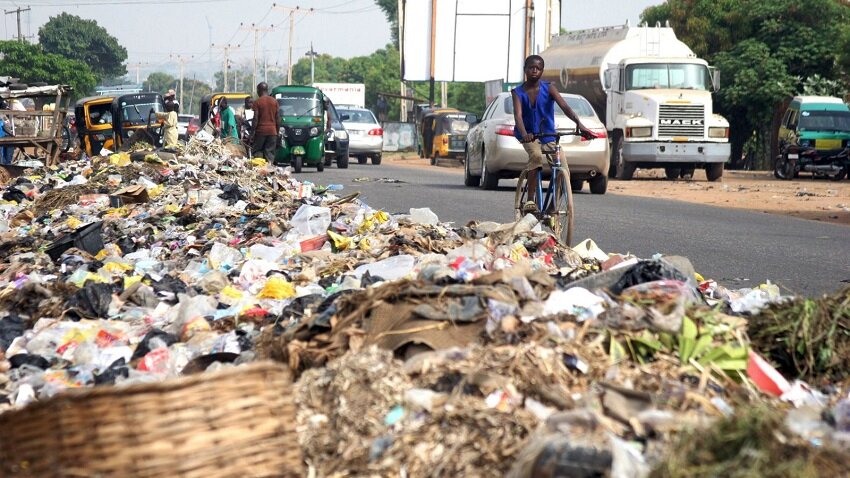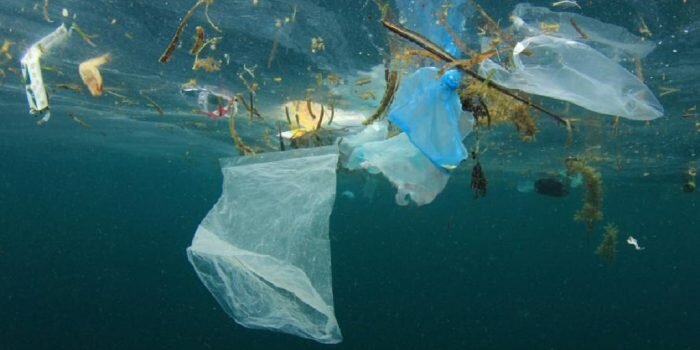
Environmental pollution: habits to help reduce and prevent it
Learn about the main causes and types of environmental pollution and learn how small changes in our daily lives can help prevent it, be it by consuming responsibly, separating waste, or choosing sustainable mobility.
Excessive noise, poorly deposited debris, loud screens and lights, and harmful gases are just some of the factors that can cause environmental pollution.
Many of them are beyond our daily reach, but with small changes, we can contribute to the functioning of the community. But how can we decrease pollution? In this note, we share several recommendations on how to avoid contamination and prevent it.
Pollution
Environmental pollution affects the health of people and living beings, causing an environmental imbalance. Find out all the information about what environmental pollution is and its main causes.
Definition of environmental pollution

What is the concept of pollution? Pollution is the presence of elements in the environment that are harmful to ecosystems and humans. It is the introduction of substances or physical elements that should not be present in an environment, affecting the balance of the ecosystem. The pollutant can be a chemical substance, heat, light and the environment can be an ecosystem or a living being.
Causes of environmental pollution
- Human activity: industrial development, gas emissions, production of non-biodegradable waste, and the indiscriminate use of plastic are some of the examples of human activity on the planet.
- Deforestation: the use of wood, the need to expand industrial areas, urban spaces, or livestock activities contribute to deforestation.
- Chemicals and pesticides: they are widely used mainly in the agricultural sector, however, they are polluting and affect soils and also water.
- Industrial and domestic waste: industrial activities produce a high amount of toxic waste such as gases and solvents. In addition, household waste also contributes to pollution such as detergents or oils, which are pollutants.
- Fossil fuels: Oil, coal, and natural gas are some of the most exploited resources in nature and are a major factor in environmental pollution.
- Production and accumulation of garbage: the production of waste is very high worldwide due to the use of plastic and other non-biodegradable products.
Types of environmental pollution
The introduction of any type of biological, physical, or chemical agent into the environment generates harmful changes. There are different types of environmental pollution. Know all the causes and consequences of each one.
Water contamination
Water pollution is when there are biological, physical, or chemical changes in the quality of water, generating harmful effects on any being that consumes it.
- Global warming: the increase in the earth’s temperature, due to CO2 emissions, heats the water, which reduces the oxygen level.
- Fuel Spills – Transportation and storage of fuels, such as oil, can reach water sources.
- Industrial, livestock, and agricultural activities: chemical product spills are one of the main causes of water eutrophication.
- Garbage and sewage discharges: according to the UN, 80% of the world’s wastewater reaches rivers and the sea without treatment.
How to avoid water pollution from home? With small actions in the home it is possible to prevent it, so do a proper treatment and management of wastewater, and ensure the minimum use of detergents when washing kitchen utensils or clothes.
Air pollution
This type of pollution is a mixture of gases and solid particles:
- One of the main causes of air pollution is the burning of fossil fuels, which come from automobiles and industrial sectors.
- Livestock and the burning of residues in agriculture are also responsible for pollution.
- There are natural sources of pollution, such as volcanic eruptions and naturally caused forest fires, that release a large number of gases.
- High levels of air pollution increase the risk of respiratory infections, strokes, heart diseases, as well as other health problems that mainly affect the vulnerable population, children, and the elderly. However, it is possible to avoid air pollution. You can use public transport, consume local products and ecological products to contribute to the protection of the environment.
Atmospheric pollution
Some of the main air pollutants are carbon monoxide and carbon dioxide. Find out where they come from and the impact they have on the environment:
- Forest fires, waste management, industrial activity, the burning of fossil fuels, the use of chemicals such as aerosols and other solvents are some of the main causes of air pollution.
- The high concentration of gases and particles in the air impact the environment causing acid rain, variations in meteorological behavior, damage to the ozone layer, as well as health problems.
Noise pollution
Noise pollution – also known as auditory pollution – is the presence of vibrations or noises that imply annoyance, damage or risk for people and for the development of activities.
- Automobile traffic, air traffic, and construction sites are some of the main causes of noise pollution.
- Dog bricks and nightlife (noise from bars and restaurants) also contribute to pollution.
- Excessive and constant noise has negative effects on hearing and can cause stress, fatigue, anxiety, depression, as well as problems with sleep, memory, and attention.
If you do not know how to avoid noise pollution, we share some tricks: use a moderate volume in electronic devices, do not use electrical appliances – such as the blender – in the hours of rest and if you do any renovation at home, take advantage of the hours of the day to do it.
Land pollution
Land pollution is the alteration of the soil by the presence of chemical substances. The high concentration of pollutants damages biodiversity and puts everyone’s health at risk. There are two types of contamination:
- One-off pollution: it is common in cities, around roads, in addition to illegal landfills.
- Diffuse pollution: covers territories that are very wide and involves the dispersion of pollutants through the air, soil, and water.
Waste management, mining, agriculture, and livestock are some of the main causes of soil pollution.
How to prevent environmental pollution
To prevent pollution it is necessary to consume resources responsibly, choose means of transport that do not emit gases, seek energy efficiency in appliances and lamps, in addition to separating your waste and recycling. If you don’t know how to avoid environmental pollution, know all the tips you can do to help the environment.
Look for energy efficiency
If you want to seek energetic efficiency at home, keep the following points in mind:
- Check that the product has efficient energy consumption when you need to buy a new appliance.
- You can save when choosing the way to light indoors and outdoors: LED lamps to reduce electricity use by 80% compared to halogen lamps and 45% compared to compact fluorescent lamps.
- The installation of solar panels can replace part of the electricity or gas consumption of the home. At present, in the market, there are solar collectors to heat the water in the hot water tank and also equipment that allows feeding the energy network of the house.
Consume responsibly
Consumption is usually linked to material objects, but we must pay attention to the amount of energy we use in our day if we think about how to prevent environmental pollution.
If you are going to build or reform a home:
- Take into account the principles of sustainable architecture, the solar path to find the ideal orientation and favor cross ventilation.
- Choose materials that maintain or prevent the entry of heat as needed, such as glass with solar control. If you prefer this solution, keep it spotless with Cif Trigger Glass Cleaner and Delicate Surfaces, which provides easy, streak-free cleaning in 10 seconds.
Avoid excessive noise
Noise pollution is produced by excess sound in a certain place and time that affects the quality of life. Crossings of busy streets, works of great magnitude, music at too high a volume, among others, are causes of this type of problem.
Among the suggestions on how to prevent environmental pollution there are several that can be incorporated into day-to-day life:
- Do not honk in a traffic jam.
- Control the noise of car and motorcycle exhausts.
- Avoid music in vehicles and homes that can affect others.
Reduces gas emissions
One of the challenges we have is to reduce polluting gases. Find out how you can do it with daily actions:
- Choosing sustainable mobility is one of the answers to how to prevent environmental pollution. The use of bicycles and skateboards, or simply walking short distances when possible, reduces the use of vehicles that emit carbon dioxide and use fossil fuels to function.
- Consuming local products that do not need distribution chains is a change in eating habits that has an impact.
You may also be interested in 7 measures to take care of the environment



